In the last couple of years, we’ve witnessed a significant shift towards natural skincare, because of growing concerns over the negative effects of synthetic chemicals in conventional products.
Natural skincare products offer a plethora of benefits not only for our skin but for the environment as well.
These ingredients are chosen for their healing, anti-inflammatory, and moisturizing properties, and their use in traditional medicine is very well documented.
Let us talk about the most widespread ingredients in greater detail.
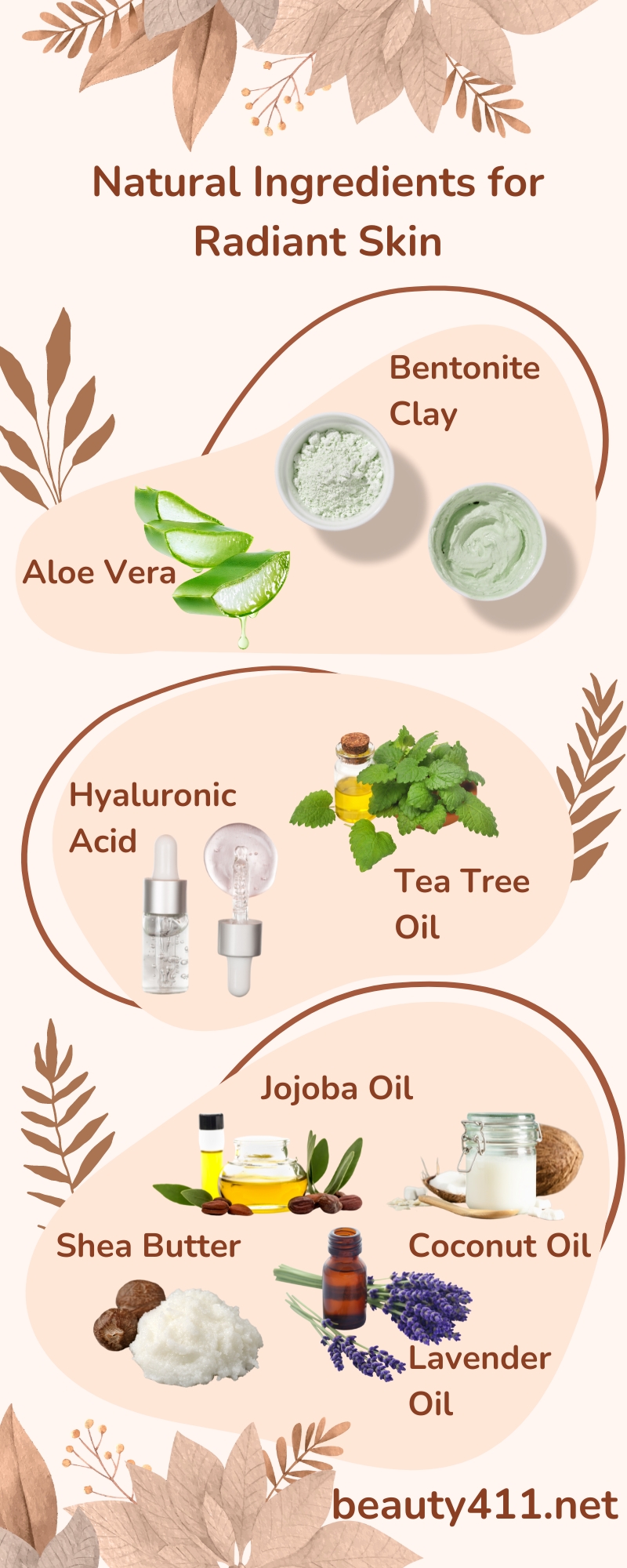
1. Aloe Vera
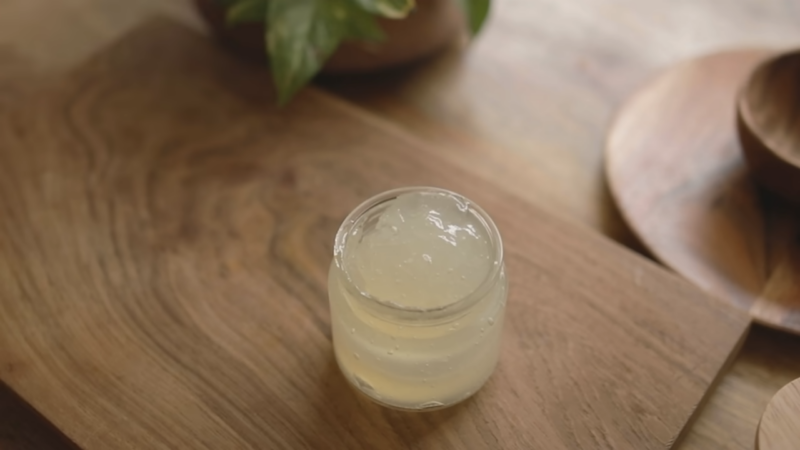
Aloe Vera is the most widespread ingredient in natural skincare, celebrated for its anti-inflammatory and healing properties.
The plant contains over 75 active components, including vitamins, enzymes, minerals, and amino acids, which collectively contribute to its potent skincare benefits.
The gel extracted from its leaves is commonly used in a variety of skincare products, offering relief and healing for:
- Cuts
- Wounds
- Burns
- Conditions like eczema and psoriasis
Its moisturizing effect is equally notable, as it not only improves hydration but also enhances elasticity and reduces the appearance of fine lines. Aloe Vera’s antimicrobial properties make it an effective natural treatment for acne, preventing bacteria buildup and calming inflamed skin.
Its ability to treat and soothe it without clogging pores makes it an ideal ingredient for all skin types, especially those sensitive or prone to irritations.
2. Bentonite Clay
Bentonite Clay derives from volcanic ash. It is omnipresent in the skincare world for its exceptional detoxifying properties.
It operates on a simple mechanism: when mixed with water, it forms a paste that binds to toxins, heavy metals, and impurities, drawing them out.
This natural clay is particularly beneficial for oily and acne-prone types, as it absorbs excess sebum, clears clogged pores, and reduces the appearance of blemishes.
It has a mineral-rich composition that helps in balancing skin oil production, preventing future breakouts.
Its gentle exfoliating effect removes dead cells, revealing a smoother, clearer complexion. Bentonite clay is a common ingredient in diaper rash creams due to its soothing and healing properties, offering a natural remedy for skin irritations.
3. Hyaluronic Acid
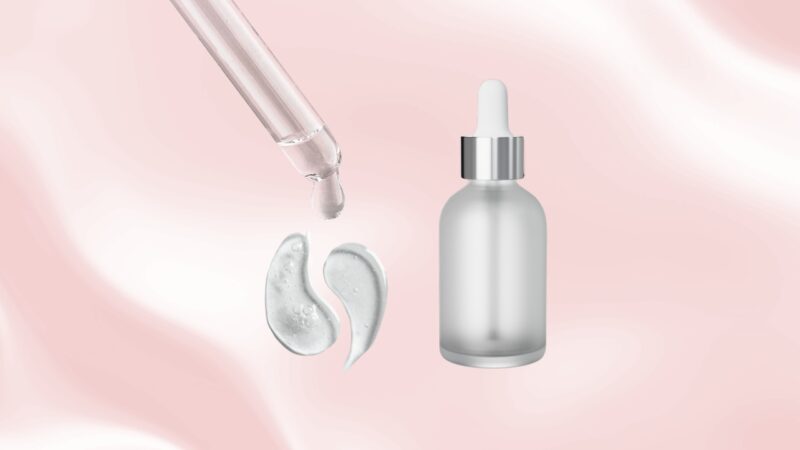
Hyaluronic Acid (HA) is a substance in the human body, renowned for its ability to retain moisture, which is a key factor in maintaining:
- Skin hydration
- Suppleness
- Elasticity
HA is sourced from plants like soy and green vegetables and then added into products to combat the visible signs of aging.
The antioxidant and wound-healing properties support health by protecting it from environmental stressors and aiding in the skin’s natural repair process.
Incorporating moisturizers containing hyaluronic acid into your nighttime routine can enhance its natural benefits, helping to replenish and revitalize your skin while you sleep.
Its gentle nature makes it suitable for all types, including sensitive and acne-prone skin, providing a non-irritating, treatment that promotes a youthful, radiant complexion.
4. Tea Tree Oil
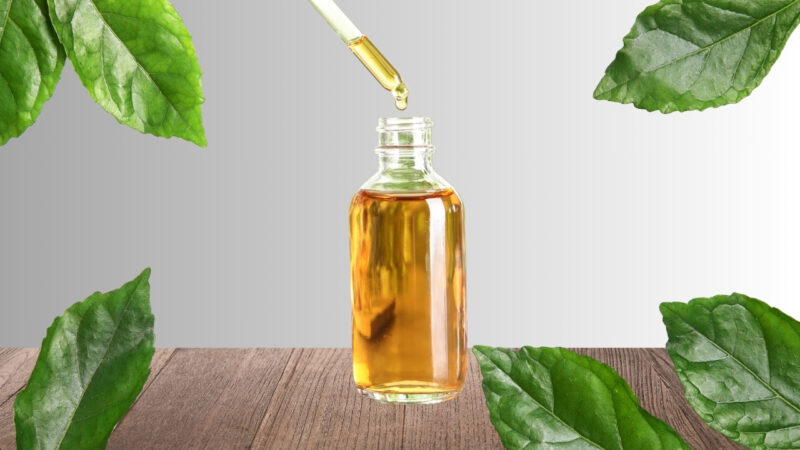
Tea tree is native to Australia and has been used in traditional medicine for centuries.
It is distilled from the leaves of Melaleuca alternifolia. This potent natural remedy is particularly effective in treating acne, thanks to its ability to combat bacteria and reduce inflammation.
Its application, however, should be cautious—diluted in carrier oils or skincare products to avoid irritation.
Tea Tree Oil is used to address a range of skin conditions, including:
- Oily skin
- Dandruff
- Fungal infections
5. Shea Butter
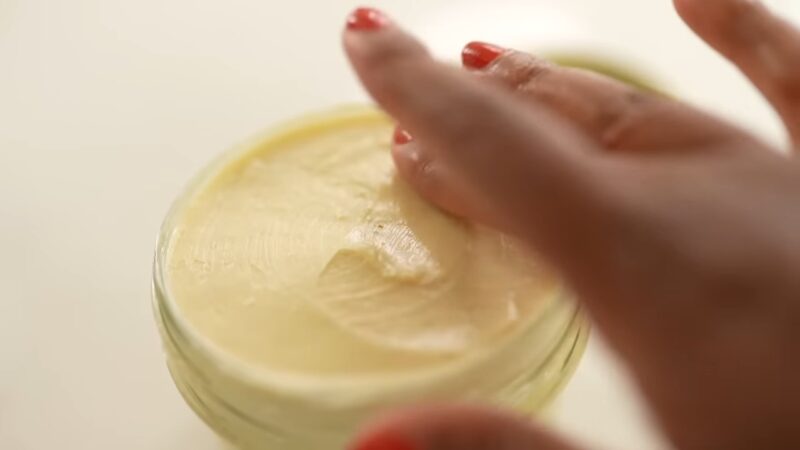
Shea Butter, derived from the nuts of the Shea tree, is filled with fatty acids and vitamins, making it an excellent moisturizer for dry and damaged skin. Its rich, emollient texture provides deep hydration, locking in moisture to help restore the skin’s natural barrier.
The antioxidants found in Shea Butter, including vitamins A and E, not only nourish the skin but also protect it against environmental damage. Its anti-inflammatory properties further contribute to its ability to soothe irritated skin, making it an effective remedy for conditions like eczema and dermatitis.
The healing effects extend to reducing the appearance of scars and stretch marks, promoting regeneration for a smoother, more even complexion.
6. Jojoba Oil
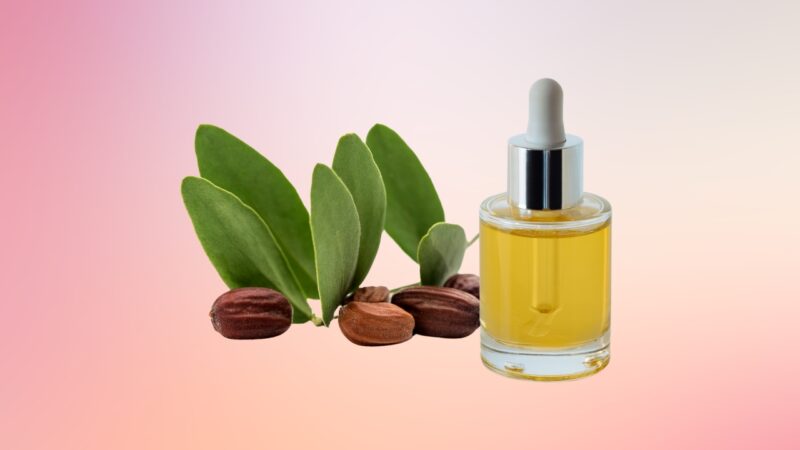
Jojoba Oil is one-of-a-kind when it comes to its chemical structure. What’s more, it is pretty close to resembling human sebum.
This similarity allows it to deeply moisturize the skin without leaving a greasy residue or clogging pores, making it ideal for all skin types, including oily and acne-prone skin.
The balancing effect helps regulate sebum production, preventing the overproduction of oil that can lead to acne, a concern for many individuals well into adulthood who may wonder at what age does acne go away.
The rich content of vitamins and minerals nourishes and protects the skin, while its anti-inflammatory properties soothe irritation and redness.
7. Coconut Oil
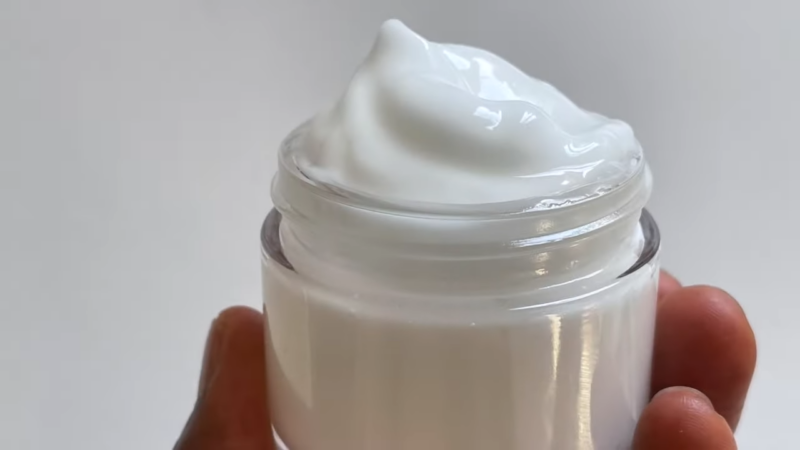
Coconut Oil is very well known for its moisturizing, anti-inflammatory, and healing properties.
Its ability to penetrate the skin deeply makes it an effective moisturizer, particularly for conditions like eczema and dermatitis. Antimicrobial properties also make Coconut Oil a natural acne treatment, helping to reduce inflammation and combat bacterial growth.
Its use in scrubs and moisturizers not only hydrates the skin but also provides a barrier against environmental pollutants. Due to its comedogenic nature, it’s best used with caution on acne-prone or oily types to avoid clogging pores.
Argan oil, renowned for its soothing and nourishing properties, offers relief for eczema and other skin irritations, making it an alternative to complement Coconut Oil in skincare routines.
8. Lavender Oil
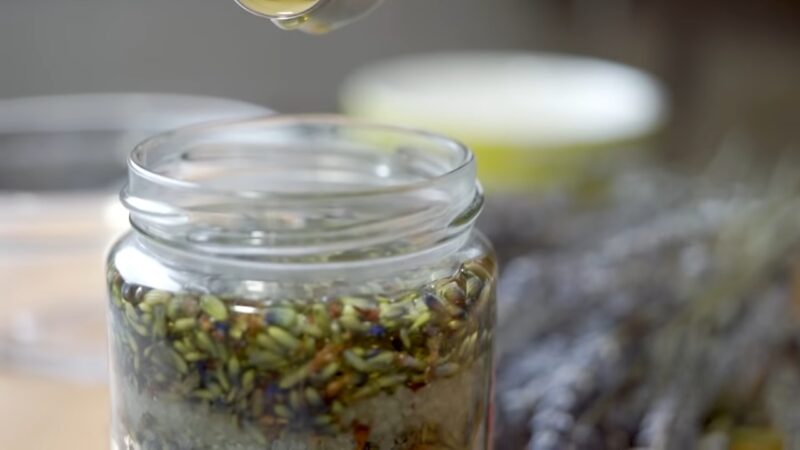
Lavender Oil has numerous therapeutic properties, including its ability to accelerate wound healing and provide antimicrobial and antibacterial effects.
The calming scent also offers psychological benefits, reducing stress and promoting relaxation, which can indirectly benefit skin health.
When diluted in carrier oils, Lavender Oil can be applied to cuts, burns, and other skin injuries to speed up the healing process while preventing infection.
Summary
Since there are so many natural ingredients we can use to nourish our skin, it might be a challenge to find the one that suits us. Of course, a lot will depend on the needs and accessibility.
Related Posts:
- 8 Best Anti-Aging Skincare Ingredients to Look Out For
- 6 of the Best Cosmetic Skin Treatments - Glow Up Guide
- The Ultimate Guide to Foundation Shades for Every Skin Tone
- Managing Sensitive Skin: Tips and Recommended Products
- Does Nail Polish Expire and When - Ensure the…
- 11 Benefits and Uses of Argan Oil: Transform Your…







